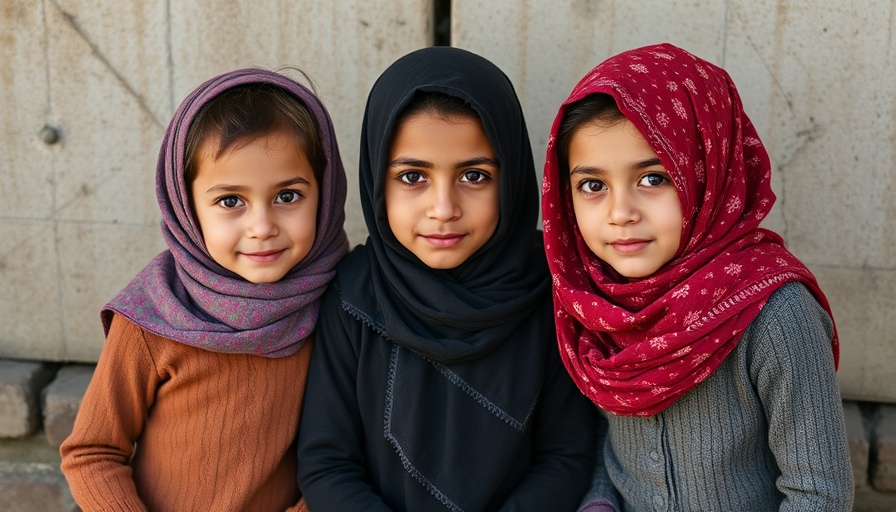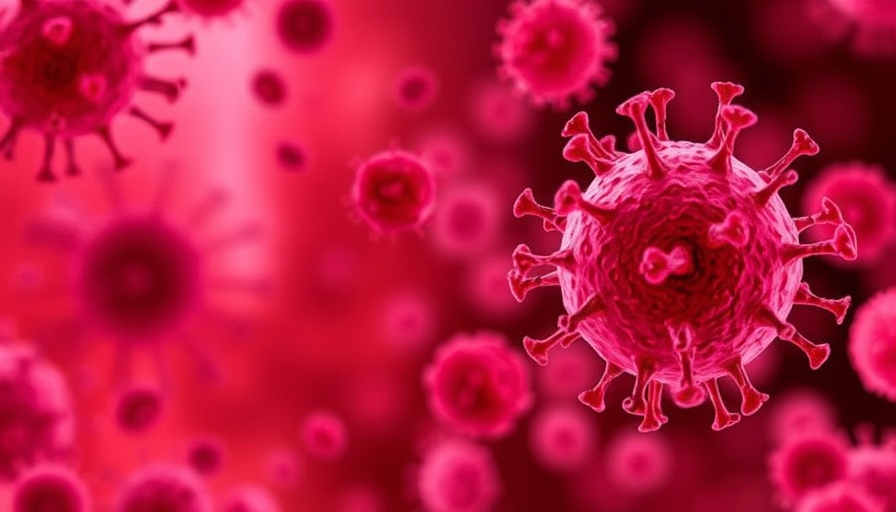
Understanding the Impact of Trauma Across Generations
The concept of trauma affecting not just individuals but entire families and communities is gaining traction, particularly within the context of conflict and migration. Recent studies, including research focusing on Syrian refugees, delve into how traumatic experiences may imprint molecular changes in DNA that can be passed down through generations. This notion of 'intergenerational trauma' underscores a biological and psychological lineage that profoundly shapes mental health outcomes.
Unpacking DNA Methylation: The Biological Mechanism
DNA methylation is a crucial process that adds methyl groups to the genome and influences gene expression. This epigenetic mechanism acts like a dimmer switch, regulating how genes are activated or silenced, thereby affecting physical and mental health. Recent findings have shown that heightened stress levels associated with traumatic experiences may lead to specific patterns of DNA methylation. This highlights an intriguing biological pathway through which the trauma experienced by one generation could potentially influence the health of subsequent generations.
Insights from the Syrian Refugee Study
A recent study published in Scientific Reports explored DNA methylation in Syrian refugees living in Jordan across three generations—grandmothers, mothers, and children. This innovative research aimed to determine how wartime experiences impact the DNA of those directly affected, those exposed in utero, and further down to grandchildren. This multi-generational approach provides invaluable insights into how both direct and indirect exposure to war may biologically encode trauma into the very fabric of their DNA.
Methodology: Examining Epigenetic Changes
Data was collected from 48 Syrian families, carefully categorizing participants based on their exposure to conflict—direct, prenatal, or germline. DNA samples collected via buccal swabs underwent rigorous testing to assess methylation levels at over 850,000 genomic sites. The analysis applied methods like Epigenome-wide association studies (EWAS) and epigenetic age assessment, shedding light on how trauma may accelerate biological aging and affect mental health.
Exploring the Legacy of Trauma: Real-Life Implications
The insights gained from this study extend far beyond molecular biology. Understanding that trauma may profoundly impact not only those who directly experience it but also their descendants opens a necessary dialogue around societal interventions and mental health support for refugees and similar populations. This understanding is vital for developing effective therapeutic interventions that acknowledge and address these underlying biological changes.
Future Directions: Implications for Psychology and Policy
The implications of this research are significant, providing a framework for future studies on trauma's effects. It calls for interdisciplinary collaboration between genetics, psychology, and social work to devise comprehensive support systems for traumatized populations. Furthermore, policymakers must consider these biological insights when designing mental health strategies and refugee support programs, recognizing the complex interplay of genetics, environment, and psychological well-being.
Conclusion: Embracing a Holistic Approach to Healing
The understanding of how trauma can affect multiple generations urges us to adopt a holistic view of health and wellness. This includes not only treating immediate symptoms but also addressing the long-term repercussions of traumatic experiences in families affected by war. By embracing this comprehensive perspective, we can create a more empathetic and effective approach to mental health care that fosters recovery and resilience.
As we glean insights from these notable studies, it is essential to spread awareness about the intergenerational effects of trauma and the importance of supporting refugee populations. Together, we can arm ourselves with knowledge, advocate for systemic changes, and promote mental health for all, benefiting individuals and communities alike.
 Add Row
Add Row  Add
Add 



Write A Comment